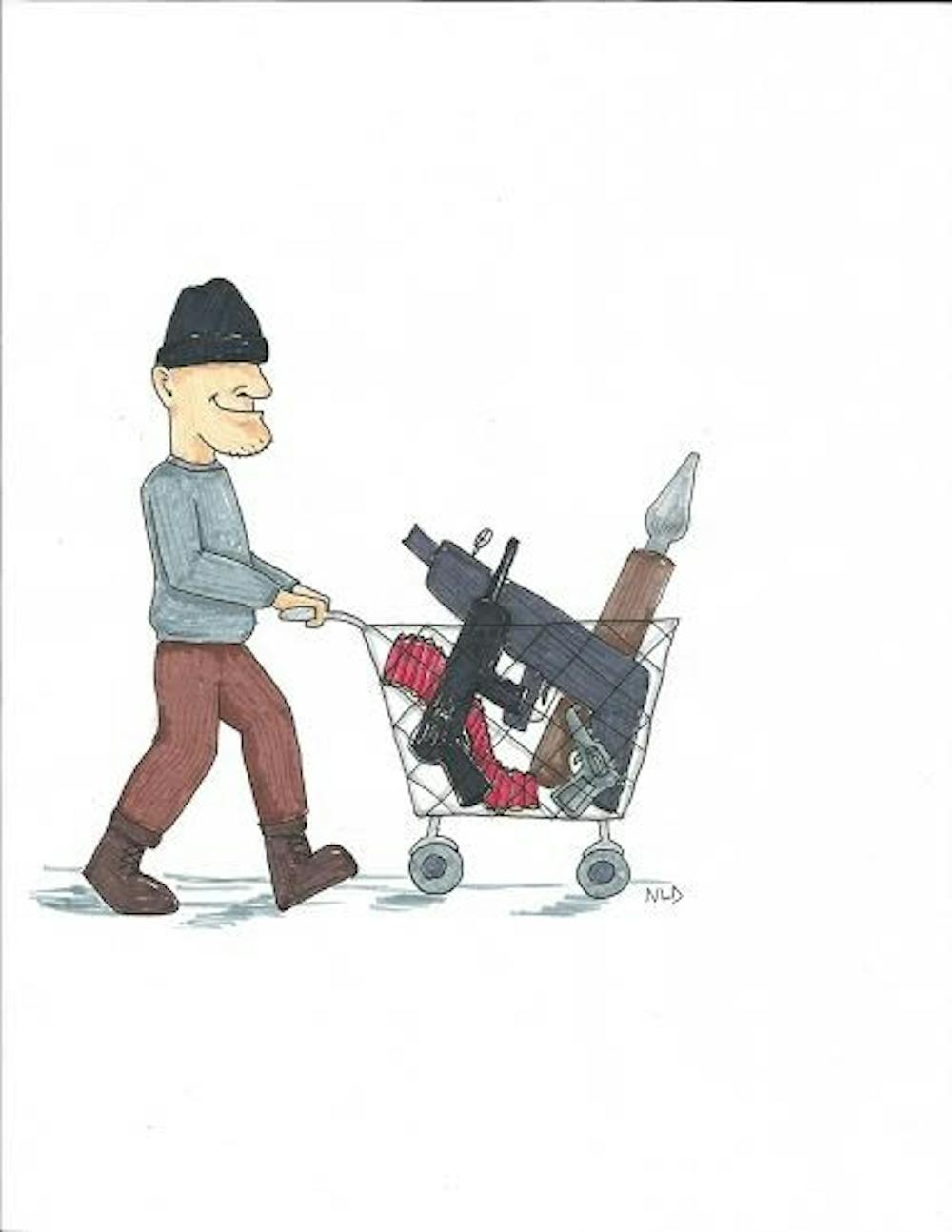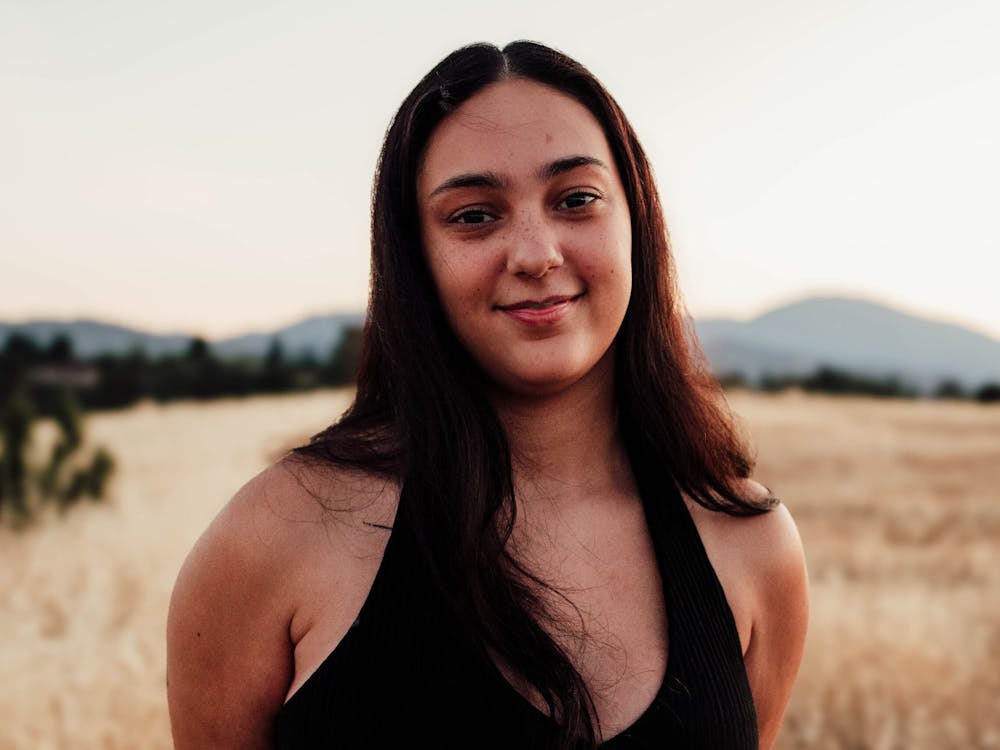In the aftermath of a tragedy, we are always left with unanswered questions. With 10 people dead and seven injured after last week’s shooting at Umpqua Community College in Roseburg, Oregon (just 174 miles south of Portland), we’re left asking: Why? Why did this happen? Why did he do it? But we’re also left asking: How? How did he get inside? How did he obtain the weapons? How did we, as a society, actively or passively let this happen?
Many people are grappling with that last one: How did we let this happen? There are no perfect answers to these questions.
For some, the answer quickly becomes political. And while the tragic shooting is so much more than a political issue — it does raise important discussions around gun control. Whether or not you think the political debate around gun control should be happening right now, the reality is: It’s happening. And we need to be a part of it. Regardless of political affiliation, we can agree on the importance of protecting innocent lives. Despite many politicians’ attempts to pit Democrats and Republicans against each other, we all need to get on board for stricter gun control — because in the end, stricter gun control saves lives.
As a community, we need to be informed. We need to have an opinion. And we need to engage in this debate in a thoughtful and constructive way — because those were our peers who were killed last Thursday. They were people our age; they could have been us.
Our opinion: We need stricter gun control.
First of all, let us begin by saying: The Second Amendment is not applicable in this debate about gun control.
The writers of the Second Amendment did not intend to protect the rights of an individual to personally own the kind of mass arsenal of weapons that some people, including the shooter at Umpqua, now have. There’s no need for it. So when we advocate for stricter gun control, we are targeting the kind of gun ownership the Founding Fathers never could’ve imagined.
The Second Amendment was written when Americans needed to be able to form a militia at the drop of a hat. People needed the right to have a gun in case the British, the Spanish or the French attacked. People needed guns to protect their homes because there weren’t Public Safety officers patrolling their neighborhoods. People needed guns because the threat of a bear attack was far more likely on the frontier than it is now in North Portland. People needed guns to hunt for food, because there wasn’t a Fred Meyer down the block.
Some people may say, “Guns don’t kill people, people kill people.” To that, we say: Sure, but a person without a gun kills a lot fewer people than a person with a gun. And if we can place better controls (and fewer loopholes) on the types of people who have guns, the types of access people have to guns and the types of guns people have access to — gun violence would be reduced immensely.
Look at the facts.
According to a 2007 report by the Arms Survey (based in Switzerland), the United States has about five percent of the world’s population, but we have 35-50 percent of the world’s civilian-owned guns. So it’s no surprise that the United States ranks number one in firearms per capita. And among the world’s most developed nations, the United States has the highest homicide-by-firearm rate.
In contrast, Japan has much stricter gun regulation — which many people cite as the reason why their homicide-by-firearm rate is the lowest in the world (one in 10 million). Under their firearm and sword law, only shotguns, air guns or guns used for research/competition/industrial purposes are permitted. And even to obtain this short list of permitted weapons, an individual has to pass a series of mental, written and drug tests in addition to a background check.
Furthermore, for those who say that now is not the time to act: In other countries, the aftermath of a tragedy is exactly what motivated the greatest change. In Australia, a mass shooting in 1996 in which 35 people died and 23 were injured, prompted immediate action. Less than two weeks after the tragedy, the national government passed major changes to their gun control legislation to prohibit automatic and semiautomatic assault rifles, regulate licensing and ownership. They even implemented a buyback program that took about 650,000 assault weapons out of public circulation. And Australia immediately saw a decrease in firearm homicide and suicide rates.
Like Australia did in 1996, it’s time we take a proactive stance against gun violence. It’s time we ask the government to implement more and better gun control legislation.
President Barack Obama made a statement addressing gun violence (for the 15th time) in the aftermath of a shooting.
“Somehow this has become routine,” Obama pointed out. “The reporting is routine. My response here at this podium ends up being routine… We’ve become numb to this.”
Now is not the time to be numb, or to silence discussion about gun control.
The time after tragedy may be painful. The time after tragedy may be full of questions. But the time after tragedy is the time to act — to act with fervor ignited by the injustice of so many lives lost to senseless violence. The time to act is now.
Like Democratic National Committee Chair Debbie Wasserman Schultz said: “This is happening because we let it.”
[socialpoll id="2299393"]








